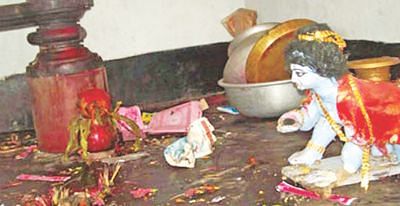Minority rights under threat
Minority rights under threat

SHAKESPEARE'S Antonio and Shylock of Merchant of Venice depicts much about the root cause of communal disharmony among the Muslims and other religious minorities of Bangladesh, since Antonio represents Christian elite who sought help from Shylock, who once persecuted at the hands of the Christians as a Jew, turned to a money launder. Shylock, the antagonist, turned into a blood thirsty bogeyman, when he had the chance to take revenge against Christian elite even though Antonio had nothing to do with the persecution of Shylock, he stands as a representative of all the persecutors in front of Shylock. Non-Muslims of Bangladesh stand as Antonio in the eyes of Muslims of Bangladesh. Question is - how?
Due to the historical turnover of the events, Muslims conquered the Indian Subcontinent from the Hindu and Buddhist rulers and later, under the British rulers, the non-Muslim elites got their power back and started to persecute Muslims. The British rulers exploited this sentiment very well and sowed the seed of communalism very deep into the hearts of their subjects. Muslims regained political control of the soil through the independence of Pakistan and from then onwards, the Muslim politicians and rulers started to persecute the non-Muslims in both Pakistan and in Bangladesh. It's like the poetic justice of Shakespeare repeating over and over again, only this time it seems to be a never ending journey for the religious minorities of Bangladesh.
The picture is different between pre and post partition of 1947. Within one year of partition, the world was presented with the first expression of rights to which all human beings are inherently entitled, i.e., Universal Declaration of Human Rights. Now, we have a benchmark of rights and the State must ensure these rights for its citizens. These rights have also given us the opportunity to measure whether human beings are living with human dignity or not. Like touchstone, it enables us to test every act of the State so that we can identify the violation of human rights by the State. Now, what do we see if we apply these 'touchstone-like' human rights on the lives of the religious minorities of Bangladesh? Are they living a dignified life as enumerated in both UDHR and the Constitution of Bangladesh?
Answer is 'No'. Why 'No'? In flashback, let's think about Ramu, post-election violence of 2001 and 2014 and the rape of Purnima. You will see religious minorities have come under attack, with abductions, desecration of religious sites, and forced conversions. There have been many reports of Hindus having been evicted from their properties, and of Hindu girls being raped, but either the police have refused to investigate or the families of the victims were terrorised and they were forced to leave their village. The government has chosen neither to prosecute those responsible, nor do discipline police officers who failed to protect victims. Many members of the Hindu community were alienated from their land by the Vested Property Act. Even though the Act was repealed in 2000, its implementation is far from reality.
Under Article 5(1)© of the 1960 Convention against Discrimination in Education: “It is essential to recognise the right of the members of national minorities to carry on their own educational activities, including the maintenance of schools”, but alas, in our education system in primary and high school level even though religious education is mandatory, there is acute lack of religious teachers to teach the minority group.
With all the above facts add the discriminatory provisions placed in the Constitution, like: the Preamble, secularism and the state religion etc. and the culture of impunity for committing atrocities upon religious minorities and all these will establish that the religious minorities of Bangladesh do not have any dignity and they are living a life without any respect towards their human rights.
The writer is Prosecutor, International Crimes Tribunal Bangladesh.